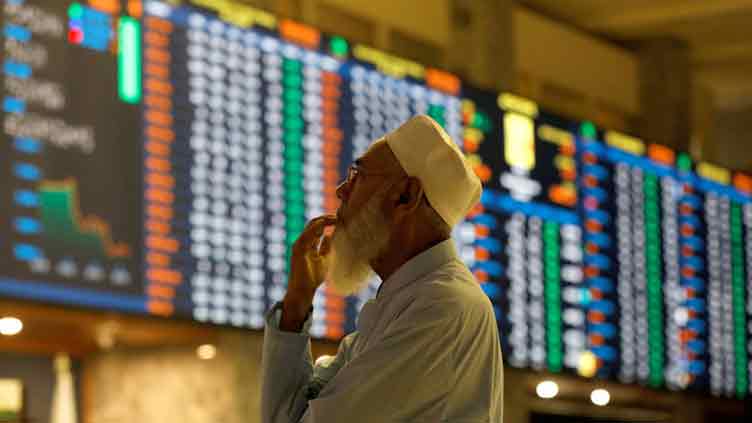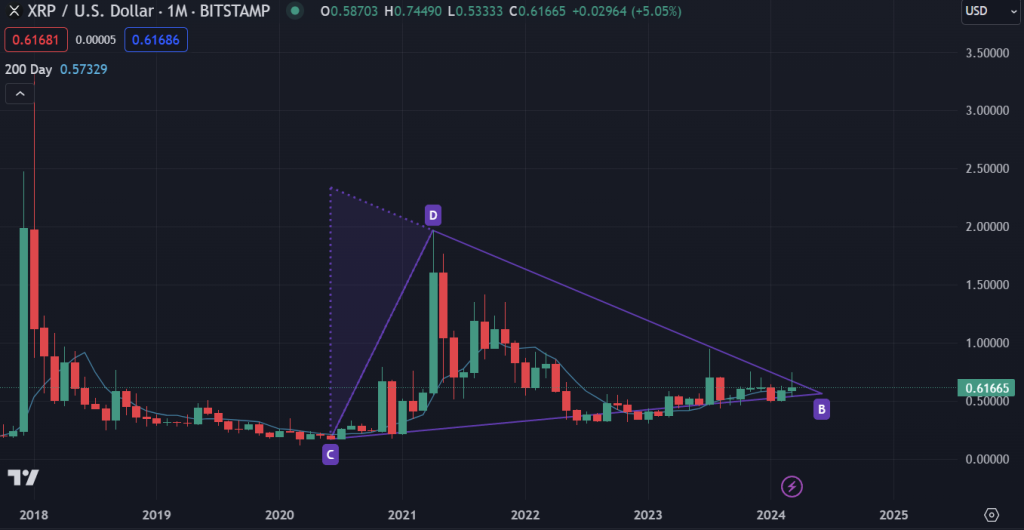Canadian Dollar: Election Uncertainty And Currency Risk

Table of Contents
Understanding the Impact of Canadian Elections on the CAD
Canadian elections significantly influence the CAD exchange rate due to their impact on economic policies. Different political parties have varying platforms, leading to potential shifts in fiscal and monetary policies that directly affect the value of the Canadian dollar. These potential changes create uncertainty in the market, impacting investor confidence and the CAD exchange rate.
-
Impact of potential changes in fiscal policy (e.g., taxes, spending) on the CAD: A government promising significant tax cuts might lead to increased consumer spending and economic growth, potentially strengthening the CAD. Conversely, plans for increased government spending could lead to higher deficits and inflation, potentially weakening the currency. The market will react to the perceived long-term impact of these fiscal policies on the Canadian economy.
-
Effect of shifts in monetary policy (interest rates) on the Canadian dollar exchange rate: The Bank of Canada's monetary policy decisions, particularly interest rate adjustments, are crucial in influencing the CAD. Different political parties might favor different approaches to monetary policy. A hawkish approach, focusing on controlling inflation through higher interest rates, could attract foreign investment and strengthen the CAD, while a dovish approach might weaken it.
-
Influence of changing trade agreements and international relations on the CAD: Election outcomes can significantly impact Canada's international trade relations. Changes in trade agreements, such as renegotiating NAFTA (now USMCA), or shifts in foreign policy, can affect export levels and investor sentiment, thereby influencing the CAD. Increased trade friction could weaken the currency, while strengthened alliances might strengthen it.
-
Market sentiment and investor confidence in the post-election environment: The market's reaction to an election outcome heavily relies on investor confidence. A clear and decisive victory for a party with a well-defined economic platform might boost investor confidence and strengthen the CAD. Conversely, a close election or a victory for a party with an unclear economic agenda could trigger uncertainty and weaken the currency. The level of political risk perceived by investors is a significant factor in determining the CAD's performance. Analyzing pre-election polls and expert opinions helps gauge potential market reactions.
Assessing Currency Risk Associated with Election Uncertainty
Currency risk, in this context, refers to the potential for losses due to fluctuations in the Canadian dollar's exchange rate. Election uncertainty amplifies this risk, making it crucial for businesses and individuals to understand and mitigate potential financial impacts.
-
Exchange rate volatility and its impact on import/export businesses: Fluctuating exchange rates create significant challenges for businesses involved in international trade. Importers face higher costs if the CAD weakens, while exporters might see reduced profits if the CAD strengthens. Accurate forecasting and hedging strategies become essential for navigating this volatility.
-
Risks of holding Canadian dollar-denominated assets during periods of election uncertainty: Investors holding Canadian dollar-denominated assets face the risk of losses if the CAD depreciates against other currencies. This risk is heightened during periods of election uncertainty, as the potential for policy changes increases volatility.
-
Potential for capital flight or investment hesitation: Uncertainty surrounding election outcomes can lead to capital flight, as investors might move their assets to perceived safer havens. This outflow of capital can put downward pressure on the CAD. Furthermore, election uncertainty might deter new foreign investments, further impacting the currency.
-
Hedging strategies to mitigate currency risk (e.g., forward contracts, options): Various hedging strategies can help mitigate currency risk. Forward contracts lock in a future exchange rate, eliminating uncertainty. Options provide the flexibility to buy or sell currency at a specific rate within a certain timeframe. Consulting with financial advisors is crucial to determine the most appropriate hedging strategy based on individual circumstances and risk tolerance.
Analyzing Key Factors Influencing the Canadian Dollar Beyond Elections
While elections are a significant factor, they are not the sole determinant of the CAD's performance. Several other macroeconomic and geopolitical factors play crucial roles.
-
Global economic conditions (e.g., US dollar strength, commodity prices, global interest rates): The strength of the US dollar, a major trading partner, significantly impacts the CAD. Commodity prices, given Canada's resource-rich economy, heavily influence the CAD's value. Global interest rates also play a role, as differences in interest rates between Canada and other countries can affect capital flows and exchange rates.
-
Canadian economic performance (e.g., GDP growth, inflation, unemployment): Canada's domestic economic performance is a major driver of the CAD. Strong GDP growth, low inflation, and low unemployment generally strengthen the currency, while poor economic performance weakens it.
-
Geopolitical events and their impact on the Canadian economy: Global geopolitical events, such as international conflicts or trade wars, can significantly impact the Canadian economy and the CAD. These events can create uncertainty and volatility in the currency markets.
Mitigating Canadian Dollar Risk in Uncertain Times
Understanding the intricate relationship between Canadian elections, currency risk, and the performance of the Canadian dollar is paramount for informed decision-making. The volatility associated with election uncertainty necessitates a proactive approach to risk management. Don't let election uncertainty impact your financial decisions. Learn more about mitigating Canadian dollar risk and develop a robust strategy to protect your investments. Consult with financial advisors or utilize specialized tools to effectively manage your exposure to CAD fluctuations and navigate the complexities of currency risk.

Featured Posts
-
 The Future Of Xrp Navigating Regulatory Challenges
May 01, 2025
The Future Of Xrp Navigating Regulatory Challenges
May 01, 2025 -
 Remembering Priscilla Pointer A Legacy Of Acting Excellence
May 01, 2025
Remembering Priscilla Pointer A Legacy Of Acting Excellence
May 01, 2025 -
 Review Of Top Rated Us Cruise Lines And Their Itineraries
May 01, 2025
Review Of Top Rated Us Cruise Lines And Their Itineraries
May 01, 2025 -
 Analyzing Xrp Ripple At Under 3 A Buyers Guide
May 01, 2025
Analyzing Xrp Ripple At Under 3 A Buyers Guide
May 01, 2025 -
 Nvidias Geopolitical Headwinds More Than Just China
May 01, 2025
Nvidias Geopolitical Headwinds More Than Just China
May 01, 2025
Latest Posts
-
 San Antonio Spurs Chris Paul Harrison Barnes And Julian Champagnies Game Attendance
May 01, 2025
San Antonio Spurs Chris Paul Harrison Barnes And Julian Champagnies Game Attendance
May 01, 2025 -
 Scandale Nba Les Celebrations A L Arme A Feu D Une Star Mettent Sa Carriere Et Sa Famille En Peril
May 01, 2025
Scandale Nba Les Celebrations A L Arme A Feu D Une Star Mettent Sa Carriere Et Sa Famille En Peril
May 01, 2025 -
 L Impact Des Celebrations A L Arme A Feu D Une Star Nba Sur Sa Vie Et Sa Carriere
May 01, 2025
L Impact Des Celebrations A L Arme A Feu D Une Star Nba Sur Sa Vie Et Sa Carriere
May 01, 2025 -
 Chris Paul Harrison Barnes And Champagnies 2023 2024 Spurs Season Game Appearances
May 01, 2025
Chris Paul Harrison Barnes And Champagnies 2023 2024 Spurs Season Game Appearances
May 01, 2025 -
 Une Ancienne Legende Denonce Les Celebrations A L Arme A Feu D Une Star Nba
May 01, 2025
Une Ancienne Legende Denonce Les Celebrations A L Arme A Feu D Une Star Nba
May 01, 2025
